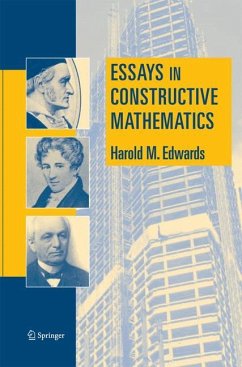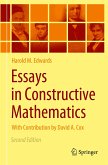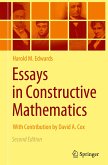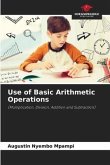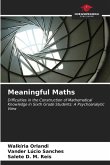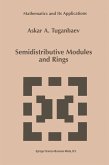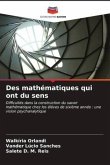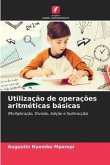He [Kronecker] was, in fact, attempting to describe and to initiate a new branch of mathematics, which would contain both number theory and alge braic geometry as special cases.-Andre Weil [62] This book is about mathematics, not the history or philosophy of mathemat ics. Still, history and philosophy were prominent among my motives for writing it, and historical and philosophical issues will be major factors in determining whether it wins acceptance. Most mathematicians prefer constructive methods. Given two proofs of the same statement, one constructive and the other not, most will prefer the constructive proof. The real philosophical disagreement over the role of con structions in mathematics is between those-the majority-who believe that to exclude from mathematics all statements that cannot be proved construc tively would omit far too much, and those of us who believe, on the contrary, that the most interesting parts of mathematics can be dealt with construc tively, and thatthe greater rigor and precision of mathematics done in that way adds immensely to its value.
From the reviews:
"Harold Edwards is well known for his books with a constructivist slant, and his latest book aims to spread his message further. ... The major part of the book consists of essays ... telling a connected story, showing what can be achieved with such a constructive restriction imposed. The achievement is impressive ... . " (John Baylis, The Mathematical Gazette, Vol. 90 (5l9), 2006)
"It is not a book about the history/philosophy of mathematics but rather a very serious book of mathematics. ... the mathematics is accessible to those with advanced undergraduate or graduate level courses in algebra ... . Without a doubt the mathematics in this book is rigorous ... . One of the nice features of this book is the bibliography which notes the sections where each reference appears. It should appeal to mathematicians and historians of mathematics alike." (Bonnie Shulman, MathDL, January, 2005)
"The author of this volume points out immediately that it is not about the history or philosophy of mathematics, but rather a book about mathematics. It soon becomes clear, though, that historical and philosophical issues strongly influenced the topics discussed. ... The general point of view is that all definitions, theorems, constructs, and proofs should involve only algorithms that terminate in a finite number of steps. ... The book contains a wealth of interesting mathematics well worth reading." (Larry C. Grove, SIAM Review, Vol. 47 (4), 2005)
"The book under review presents several important topics in mathematics from a constructivist point of view. ... This book is a delight to read. ... Moreover, the required background is kept to a minimum, so the book can be read by anyone with a good understanding of basic algebra. ... The style of the book itself is sufficient reason for reading it. ... One would wish that more mathematicians read the masters in search of inspiration, instead of merely following the most recent fads." (S.C. Coutinho, SIGACT News, Vol. 41 (2), 2010)
"Harold Edwards is well known for his books with a constructivist slant, and his latest book aims to spread his message further. ... The major part of the book consists of essays ... telling a connected story, showing what can be achieved with such a constructive restriction imposed. The achievement is impressive ... . " (John Baylis, The Mathematical Gazette, Vol. 90 (5l9), 2006)
"It is not a book about the history/philosophy of mathematics but rather a very serious book of mathematics. ... the mathematics is accessible to those with advanced undergraduate or graduate level courses in algebra ... . Without a doubt the mathematics in this book is rigorous ... . One of the nice features of this book is the bibliography which notes the sections where each reference appears. It should appeal to mathematicians and historians of mathematics alike." (Bonnie Shulman, MathDL, January, 2005)
"The author of this volume points out immediately that it is not about the history or philosophy of mathematics, but rather a book about mathematics. It soon becomes clear, though, that historical and philosophical issues strongly influenced the topics discussed. ... The general point of view is that all definitions, theorems, constructs, and proofs should involve only algorithms that terminate in a finite number of steps. ... The book contains a wealth of interesting mathematics well worth reading." (Larry C. Grove, SIAM Review, Vol. 47 (4), 2005)
"The book under review presents several important topics in mathematics from a constructivist point of view. ... This book is a delight to read. ... Moreover, the required background is kept to a minimum, so the book can be read by anyone with a good understanding of basic algebra. ... The style of the book itself is sufficient reason for reading it. ... One would wish that more mathematicians read the masters in search of inspiration, instead of merely following the most recent fads." (S.C. Coutinho, SIGACT News, Vol. 41 (2), 2010)

